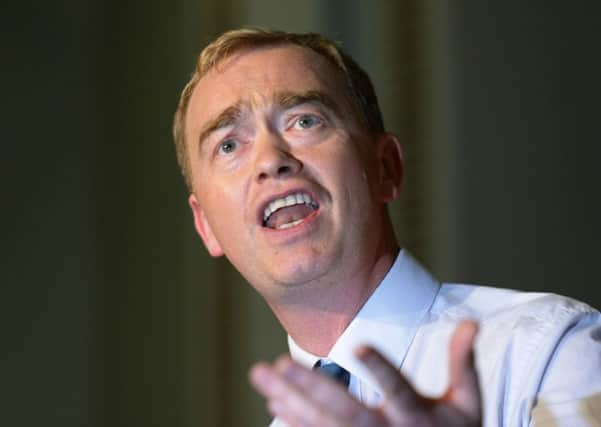David Maddox: Farron’s struggle with gay rights


Back in 1995 while I was a divinity student at St Andrews I wrote an essay on sexual ethics which concluded that gay marriage should not just be allowed but actually encouraged. At the time it put me far out on the liberal fringe and the reality of it happening was not seriously on the agenda.
Two decades later that conclusion has not just been realised legislatively in all parts of the UK apart from Northern Ireland but is now the mainstream view which means those who oppose it are more often than not seen to be extreme.
Advertisement
Hide AdAdvertisement
Hide AdWhich brings us on to the problem of Tim Farron, the newly crowned leader of the Liberal Democrats. Mr Farron has spent the first few days in office desperately avoiding the question of what he thinks about homosexuality and specifically whether same-sex intercourse is a sin.
The issue is that the Lib Dem leader is a devout Christian and, as such, may have a problem with the morality of homosexuality. He certainly abstained on the third reading of the marriage bill which was taken as opposition to it.
His position might not be quite so problematic if he were leader of the Tories which has many professed social conservatives. But he is leader of the Lib Dems who claim to be the progressive force pushing liberal values, which includes the individual’s right to choose his or her own lifestyle within reason.
Mr Farron is not the only Lib Dem MP facing this quandary over faith and politics. Southport MP John Pugh, a Catholic, is a leading opponent of abortion and voted against equal marriage. Leeds MP Greg Mulholland also struggled over equal marriage.
The issue though has wider implications. Expressing concern over equal marriage or other issues on homosexuality can land people in the courts, even in Northern Ireland where equal marriage is not yet legal. There have been claims it has led to people being sacked.
While it is not impossible to be a Christian and be pro-gay rights, the majority are in the other camp.
But have we reached a point where mainstream political figures cannot have strongly held religious views?
The problem is that social change on this issue has been rapid and achieved through legal means rather than persuasion. The issue of sexuality has been treated the same as race.
Advertisement
Hide AdAdvertisement
Hide AdWhile it may be the right thing to do it has left millions, who do not agree and see homosexuality as a lifestyle choice, feeling ignored and, in some cases, suddenly criminalised. Ukip capitalised on this.
The feeling of resentment this has caused will only be made worse if it becomes currency that it is incompatible to have a deep faith and be a leading mainstream politician.